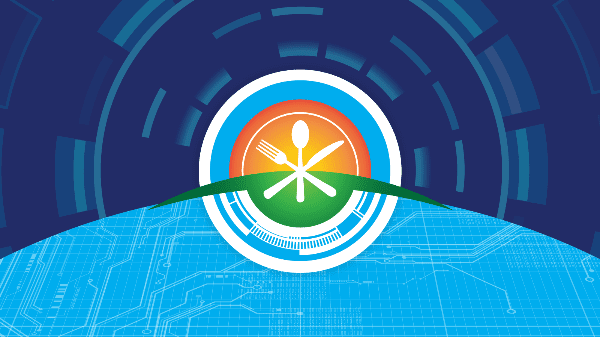The FDA is proposing to establish additional traceability recordkeeping requirements (beyond what is already required in existing regulations) for persons who manufacture, process, pack, or hold foods the Agency has designated for inclusion on the Food Traceability List.
The proposed rule, “Requirements for Additional Traceability Records for Certain Foods” (Food Traceability Proposed Rule) is a key component of the FDA’s New Era of Smarter Food Safety Blueprint and would implement Section 204(d) of the FDA Food Safety Modernization Act (FSMA).
The proposed requirements would help the FDA rapidly and effectively identify recipients of those foods to prevent or mitigate foodborne illness outbreaks and address credible threats of serious adverse health consequences or death. The proposed rule will be available for public comment for 120 days following publication in the Federal Register.
At the core of this proposal is a requirement for those who manufacture, process, pack or hold foods on the Food Traceability List (FTL) to establish and maintain records containing Key Data Elements (KDEs) associated with different Critical Tracking Events (CTEs).
While the proposed requirements would only apply to those foods on the FTL, they were designed to be suitable for all FDA-regulated food products. FDA would encourage the voluntary adoption of these practices industry-wide.
The FDA issued a Federal Register notice to solicit comments on our draft approach for developing a list of high-risk foods in 2014. Taking into consideration the comments and other information submitted, we developed a draft risk-ranking model and collected data to populate the model for chemical and microbiological hazards associated with specific foods, with technical assistance from external expert panels.
Two separate peer-review panels of independent external experts reviewed the draft model and the data used to generate risk scores with the model, respectively. Subsequently, we refined the model and updated the data, taking into consideration comments from the peer reviews.
Using the results of the risk-ranking model, we tentatively identified foods for the Food Traceability List for which additional traceability records will be required, as shown in Table 1.0. The term “Food Traceability List” (FTL) refers not only to the foods specifically listed, but also to any foods that contain listed foods as ingredients. Each proposed requirement described below therefore pertains to all such foods unless an exemption applies.
Table 1.0 Food Traceability List
| Foods | Description |
| Cheeses, other than hard cheeses | Includes all soft ripened or semi-soft cheeses, and fresh soft cheeses that are made with pasteurized or unpasteurized milk |
| Shell eggs | Shell egg means the egg of the domesticated chicken |
| Nut butter | Includes all types of tree nut and peanut butters; does not include soy or seed butters |
| Cucumbers | Includes all varieties of cucumbers |
| Herbs (fresh) | Includes all types of herbs, such as parsley, cilantro, basil |
| Leafy greens, including fresh-cut leafy greens | Includes all types of leafy greens, such as lettuce, (e.g., iceberg, leaf and Romaine lettuces), kale, chicory, watercress, chard, arugula, spinach, pak choi, sorrel, collards, and endive |
| Melons | Includes all types of melons, such as cantaloupe, honeydew, and watermelon |
| Peppers | Includes all varieties of peppers |
| Sprouts | Includes all varieties of sprouts |
| Tomatoes | Includes all varieties of tomatoes |
| Tropical tree fruits | Includes all types of tropical tree fruit, such as mango, papaya, mamey, guava, lychee, jackfruit, and starfruit |
| Fruits and Vegetables (fresh-cut) | Includes all types of fresh-cut fruits and vegetables |
| Finfish, including smoked finfish | Includes all finfish species, such as cod, haddock, Alaska pollack, tuna, mahi mahi, mackerel, grouper, barracuda, and salmon; except does not include siluriformes fish, such as catfish [1] |
| Crustaceans | Includes all crustacean species, such as shrimp, crab, lobster, and crayfish |
| Mollusks, bivalves | Includes all species of bivalve mollusks, such as oysters, clams, and mussels; does not include scallop adductor muscle. |
| Ready-to-eat deli salads | Includes all types of ready-to-eat deli salads, such as egg salad, potato salad, pasta salad, and seafood salad; does not include meat salads |
The proposed rule sets forth a process for the FDA to update the Food Traceability List if the agency concludes that updates are appropriate. Under that process, FDA would publish a notice in the Federal Register stating any proposed changes to the list and the reasons for the changes, and requesting information and views on the proposal.
After considering any information or views submitted, the FDA would publish a second notice in the Federal Register, stating whether any changes are being made, and the reason for the decision. Any additions to the list would become effective one year after the date of the second Federal Register notice, unless otherwise stated. Any deletions from the list would become effective immediately.
Additional information about the FTL and the Risk-Ranking Model can be found on the Food Traceability List webpage.



